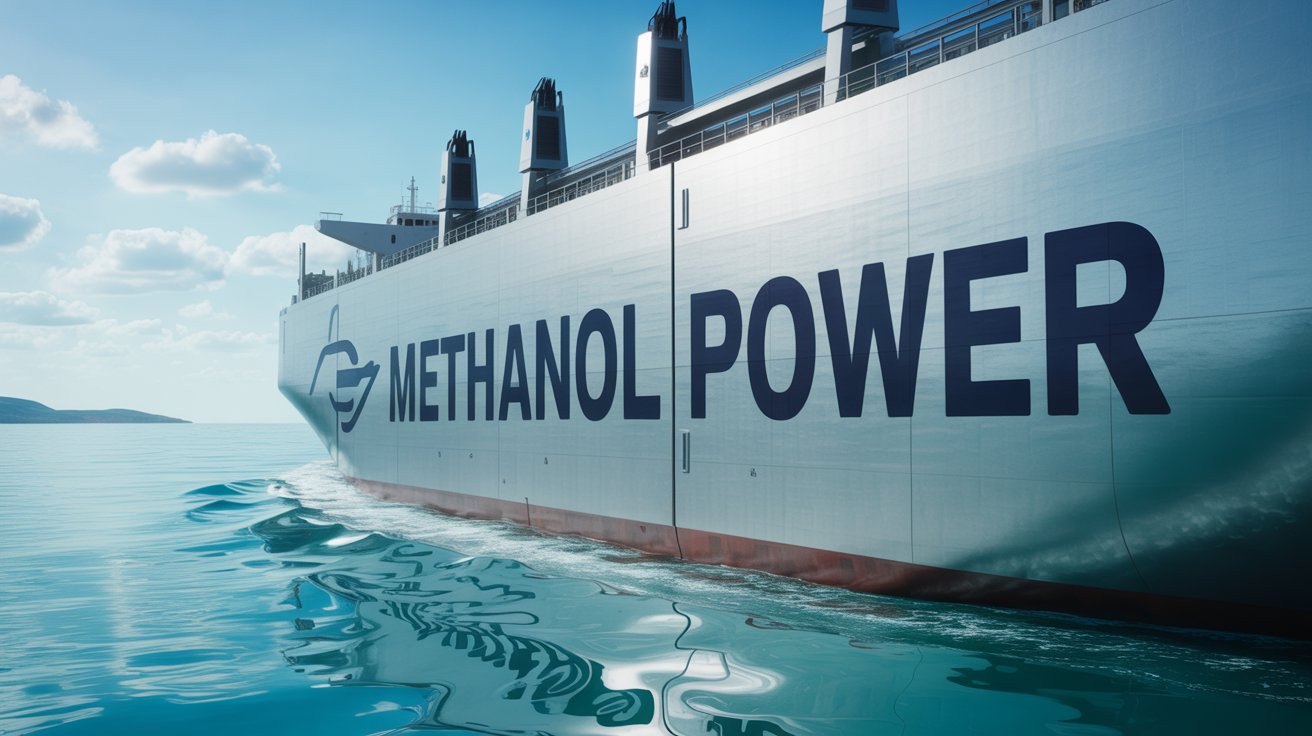The methanol powered ships market is poised for exponential growth as global attention turns toward sustainable maritime fuel alternatives. With green methanol becoming a focal point of international decarbonization strategies, the market is set to grow from USD 4.29 billion in 2025 to a staggering USD 30.98 billion by 2035. This growth reflects a compound annual growth rate of 21.9% between 2025 and 2035, supported by rapid technological progress, policy alignment, and investment in methanol marine fuel technology.

At the heart of this transformation lies a shift toward green methanol—produced from renewable resources like biomass, captured CO₂, and green hydrogen—as a preferred low-carbon marine fuel. The adoption curve is steep, with 30 new green methanol vessels expected to be delivered in 2025, growing to 274 units by 2035. Retrofitted vessels are also gaining traction, increasing from 4 units in 2025 to 213 by 2035. This steep uptake highlights the industry’s growing trust in methanol marine fuel technology as a viable decarbonization pathway.
Download PDF Brochure @
https://www.marketsandmarkets.com/pdfdownloadNew.asp?id=205585780
The rapid advancement of dual-fuel engine systems is central to the rise of methanol in shipping. These systems allow vessels to operate on both methanol and traditional marine fuels, providing fleet operators with flexibility and reducing their exposure to fuel supply volatility or evolving environmental regulations. Such developments in methanol marine fuel technology not only ensure smoother regulatory compliance but also improve operational efficiency—making them an attractive choice for shipping companies globally.
One of the most compelling drivers of this Green Methanol Ships industry is the push for global decarbonization led by the International Maritime Organization’s mandate to reduce greenhouse gas emissions by 50% by 2050. As a result, major shipping lines are racing to incorporate methanol-powered vessels into their fleets. Companies like Maersk have already begun investing heavily in green methanol propulsion systems to align with their corporate ESG goals and achieve carbon neutrality.
However, this transition is not without its challenges. The high upfront costs of new methanol-fueled vessels and the complexity of retrofitting existing ships pose significant barriers. Methanol-compatible engines, fuel tanks, and safety systems require extensive redesign, making retrofitting a technically demanding and costly process. These complexities are particularly difficult for older fleets where retrofitting might not even be feasible, raising questions around return on investment and long-term reliability.
Despite these financial and technological hurdles, green methanol presents unique advantages, especially for long-haul maritime transportation. Its high energy density makes it suitable for extended voyages, and its handling and storage requirements are significantly less demanding than hydrogen or battery-based systems. This practicality gives methanol marine fuel technology a clear edge as international shipping routes grow and the need for reliable, long-distance, low-emission solutions becomes more urgent.
Several countries in the Rest of the World region, notably Brazil and Mexico, are investing heavily in methanol fuel infrastructure, enabling wider adoption and offering substantial growth opportunities. Singapore, in particular, is emerging as the fastest-growing market due to its rapid development of bunkering infrastructure and commitment to green shipping corridors. Meanwhile, the Asia-Pacific region remains dominant, housing the world’s largest shipbuilding nations—China, South Korea, and Japan—who are all actively investing in methanol-powered vessels and technology.
Market segmentation reveals that newly built and linefit ships are expected to dominate due to the advantages they offer in terms of fuel efficiency, emissions reduction, and compliance with upcoming international standards. Unlike retrofitted ships, these vessels are designed from the ground up to operate on green methanol, allowing better integration of advanced fuel systems and reducing operational complexity.
Methanol marine fuel technology is also experiencing strong demand in passenger vessels and commercial segments. These ships benefit from methanol’s cleaner combustion, easier fuel handling, and alignment with green financing frameworks. The dual-fuel segment, in particular, is expected to lead, as it ensures adaptability while navigating evolving maritime emission rules across geographies like the European Union and North America.
The ecosystem of the methanol powered ships market is composed of a dynamic network of stakeholders including shipbuilders, fuel suppliers, engine manufacturers, regulators, and fleet operators. Companies like HD Hyundai, COSCO, Wärtsilä, MAN Energy Solutions, and Proman are spearheading the industry’s movement toward clean fuel adoption through continuous investments, strategic partnerships, and product innovation.
Key Market Players
Top Methanol Powered Ships Companies such as HD Hyundai Heavy Industries (South Korea), Samsung Heavy Industries (South Korea), COSCO Shipping Industries Co., Ltd. (China), Huangpu Wenchong Shipbuilding Company Limited (China), and Shanghai Waigaoqiao Shipbuilding Co., Ltd. (China), Damen Shipyards Group (Netherlands), VARD AS (Norway), Sanlorenzo Yachts Limited (England) and Archipelago Expedition Yachts (England) among others.
Recent developments have significantly reinforced the momentum in this market. In 2024 and 2025 alone, numerous global contracts have been signed for methanol-powered bulk carriers, superyachts, and containerships. High-profile projects include the launch of the 50 X-Space bi-fuel yacht by Sanlorenzo and MAN, the methanol bunkering of Stena Provident at the Port of Savannah, and Hyundai’s delivery of the ultra-large “Alette Mærsk” to Maersk. Meanwhile, Japanese companies like Mitsubishi Shipbuilding are building their first methanol-fueled roll-on/roll-off vessels to be operational by 2027, marking significant regional milestones.
The Methanol marine fuel technology represents a critical pillar in the future of global maritime decarbonization. As regulatory frameworks tighten and pressure to meet ESG targets increases, green methanol is becoming more than a transitional fuel—it’s positioning itself as a long-term solution. With robust growth projections, evolving infrastructure, and industry-wide collaboration, the methanol powered ships market is charting a new course toward a cleaner, more resilient maritime industry.
